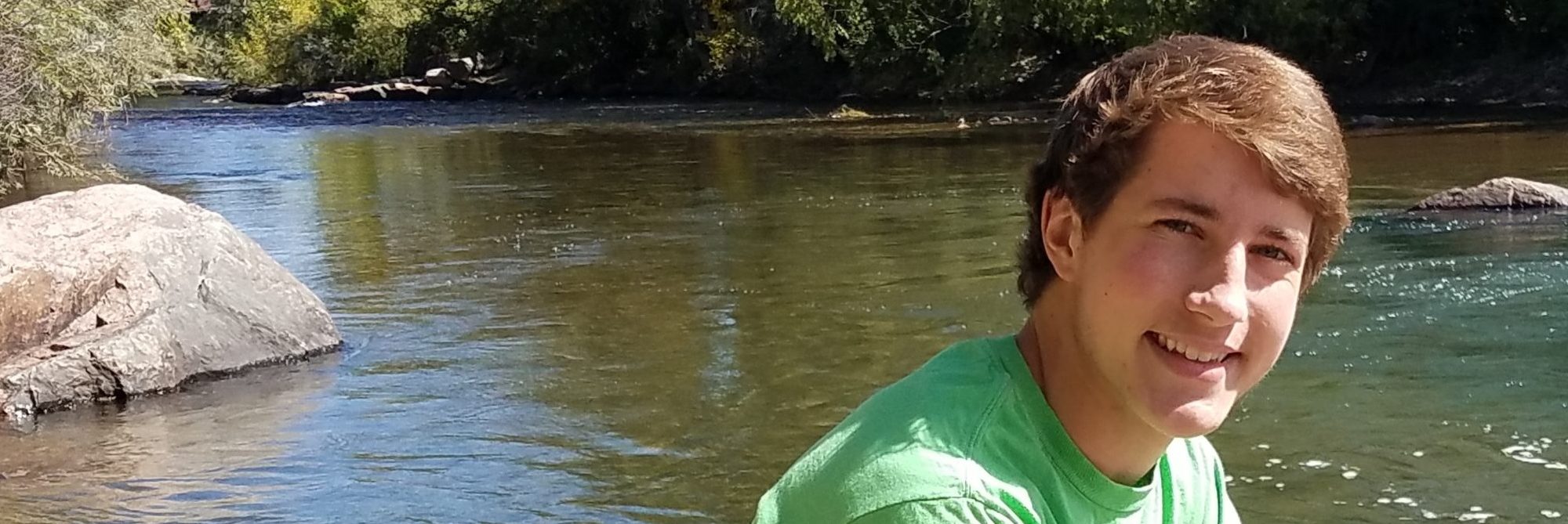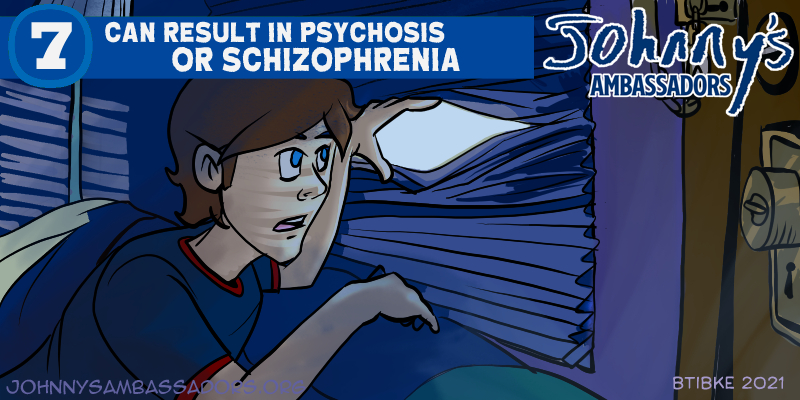By Laura Stack
One of the dirtiest of modern marijuana’s Dirty Dozen outcomes of adolescent marijuana use is the fact that it can cause some users to experience psychotic episodes, and worse, permanent cases of schizophrenia in otherwise stable individuals. I’m not talking about upset feelings or mild paranoia. No, the result can be extreme violence and a sense of persecution with a complete detachment from reality, where obsession, mistrust, suspicion, and an acute sense that someone is out to get you becomes the order of the day.
Unfortunately, I speak from personal experience, because my son Johnny experienced psychotic episodes and developed schizophrenia after years of heavy use of high-potency marijuana products. He was especially prone to dabbing THC concentrates—wax, shatter, vapes, etc.—which may contain as much as 99% pure THC, the chemical in marijuana that makes you high. As I’ve shown repeatedly in this blog, it’s also the chemical that hurts and kills you.
The Schizophrenia Question
Experts knew a correlation existed between marijuana and schizophrenia/psychosis for decades before they proved a direct link. The evidence lay in the significantly increased risk of schizophrenia and psychosis among pot users, especially heavy users. The problem wasn’t one of proof, but of proving a causal link: i.e., that marijuana triggered the schizoid effects, not that schizophrenic people, or those who had the potential to become schizophrenics, simply chose marijuana as their drug of choice more often than other people.
However, later large-scale, long-term studies solidly established the link from marijuana to schizophrenia rather than vice-versa. It became especially obvious that marijuana use beginning in adolescence is a significant risk factor for developing schizophrenia as an adult. By 2018, the medical community agreed that marijuana can trigger psychosis and schizophrenia in those susceptible to it—and in some who aren’t, like my son.
In a new landmark study on July 21, 2021, “Development over time of the population-attributable risk fraction for cannabis use disorder in schizophrenia” from Denmark proves that marijuana causes schizophrenia. To set the stage, if marijuana use were a cause of schizophrenia, you would see more cases of schizophrenia as marijuana use and potency increase over time. That argument would require measuring the incidence of schizophrenia over time. Danish researchers have done just that, and their results pretty much end the argument. Denmark has a national healthcare registry, which enables researchers to study disease diagnoses of the entire population. In this case, they looked at diagnoses of schizophrenia and cannabis use disorder between 1972 and 2016. They find that “the proportion of cases of schizophrenia associated with cannabis use disorder has increased 3- to 4-fold during the past two decades, which is expected given previously described increases in the use and potency of cannabis.” The population-attributable risk fraction for cannabis use disorder in schizophrenia increased from approximately 2% in the period to 1995 to approximately 6% to 8% since 2010. This is proof that marijuana causes schizophrenia, or its increased use wouldn’t have done a thing to the 2% rate.
The Dosage and Genetic Connection
We’ve long known that susceptibility to schizophrenia can has a genetic component, especially when both of a subject’s parents or a sibling (especially a twin) has the disorder. But even when one twin gets schizophrenia, the other twin may not. And an unusual number of heavy users without a family history of schizophrenia become psychotic and schizophrenic after using marijuana, sometimes even just once. The occurrence seems dose-dependent. Those who use high-potency marijuana, that with greater than 10% THC content, are more likely to experience first-use psychoses, and/or to later develop schizophrenia (please note that psychosis isn’t a complete diagnosis; it’s typically a symptom of schizoid disorders). The average THC content of even legal products is usually over 15%, so it’s no surprise we’re seeing a rise in mental disorders among heavy users.
Even users who have no known schizophrenia in their families develop the disorder at a higher rate than those who don’t use cannabis. And researchers have come to realize that it isn’t just extremely heavy users who fall prey to marijuana-based schizophrenia. Even using high-potency marijuana as few as five times during adolescence can result in a higher risk of schizophrenia as an adult. Based on a number of closely-examined peer-reviewed studies, marijuana users suffer schizophrenia and psychosis 400% to 700% more often as adults than non-users.
There are also several hidden gene variants that marijuana use can trigger to cause schizophrenia, especially over time. But having these gene variants does not automatically cause schizophrenia, any more than having schizophrenic relatives does. Despite what some critics claim, the disorder would not necessarily have “happened anyway” in people with the schizophrenic risk genes. In fact, most people who have these gene variants (or a history of family schizophrenia) never acquire the disorder, and those who do typically experience some triggering factor or event—like marijuana use.
One thing I must emphasize here is that people who completely lack these genetic risk factors can still become schizophrenic or psychotic after marijuana use—usually if at a young age, frequent, high-potency use—though not always. As previously mentioned, for some people it takes only one hit. I must also point out that individuals who lack the known risk factors for susceptibility to cannabis-induced psychosis may possess some other propensity for the disorder that science has not yet identified. At the current time, why they succumb to schizophrenia remains a mystery.
My son Johnny is a prime example. After his death, I thoroughly checked all his health records, as well as the DNA test he had for any genetic risk factors that might have tilted him toward schizophrenia. He tested as completely normal in the known genes, with none of the known risk factors present. While his paternal grandfather had a personality disorder that made him shy away from other people, he was never psychotic. Johnny was the complete opposite of his grandfather—outgoing, pleasant, and fun to be around. But he was a heavy user of high-potency marijuana products, especially toward the end, when he preferred dabbing. Somehow, the marijuana made him extremely paranoid, to the point where he believed the government and the mob watched him constantly.
Bottom Line
If marijuana can turn an extroverted, happy, gentle young man with no genetic schizophrenia markers into a sometimes-violent, introverted paranoid afraid of everything, it can ruin anyone. Johnny knew using marijuana had ruined his brain; he told me so three days before his death.
The lesson here is that it doesn’t matter how “clean” you are genetically. Johnny was a normal, intelligent young man. He had no inherited or recessive genetic propensity for psychosis or schizophrenia. Yet after years of marijuana use, he became psychotic. When he stopped using marijuana, he would recover. When he used again, his symptoms would flare. Eventually, even when he finally stopped using, the psychosis didn’t resolve, and it converted to schizophrenia in the end of his lief. No one can legitimately explain the change as due to genetic phenomena. The only difference between Johnny-before and Johnny-after was his marijuana use.
Marijuana caused Johnny’s psychosis and ultimately his death. I have no doubt about it. If it weren’t for marijuana, I know Johnny would still be with us today.


